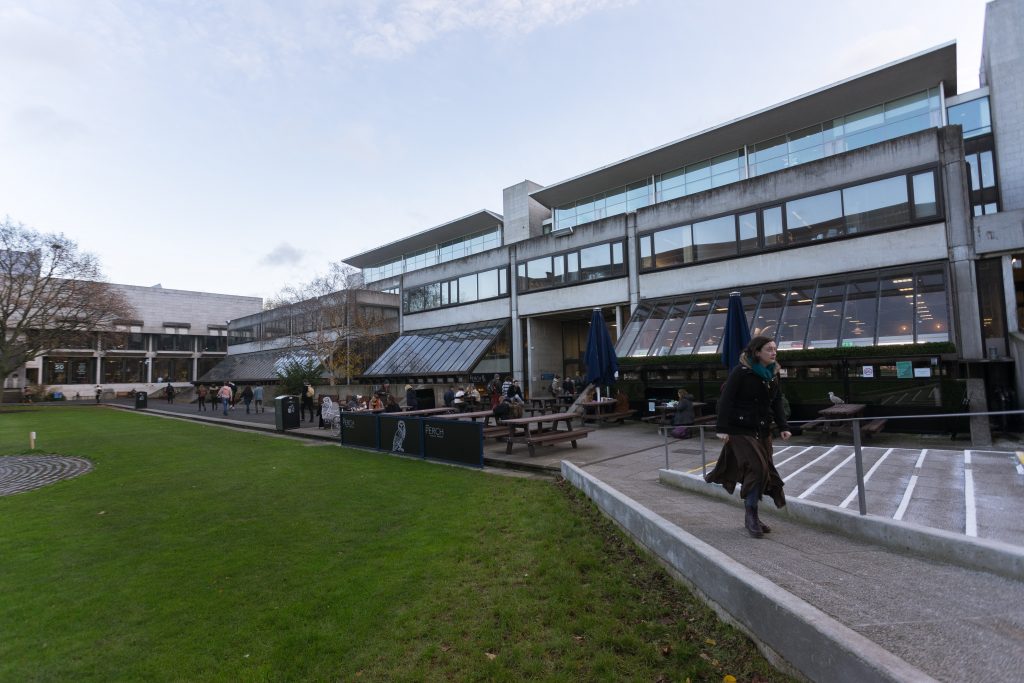Despite overwhelmingly positive advancements with regards to the easing of Ireland’s lockdown restrictions, uncertainty about the future still remains a huge issue weighing on the minds of students in Trinity and beyond. Between the choice students face regarding Erasmus, and uncertainty surrounding housing and accommodation, the idea that all possible outcomes could culminate in working from a screen at home is becoming all the more plausible.
The word “home” has been used in official government pandemic resources to denote someone’s place of residence: their house. Working from your house, studying from your house and exercising as close as you can to your house, have all been recommended to stay safe this side of a vaccine. But your place of residence may not be your sanctuary. For many students it can be a place of alienation or exile. A lack of access to somewhere you feel a sense of belonging can strip students of a deep, instinctual attachment to the college campus that many call home, regardless of whether or not they live on site.
“Despite overwhelmingly positive advancements with regards to the easing of Ireland’s lockdown restrictions, uncertainty about the future still remains a huge issue weighing on the minds of students in Trinity and beyond.”
Combined with this, the increased reliance on technology we have seen in the past ten years, and in particular over the course of the pandemic, has suggested that our innate sense of home has now taken root in front of a screen. The author Shoshana Zuboff describes this as an “information civilisation”. Students will have recognised this phenomenon when they attend a Zoom tutorial, listen to lecture podcasts online or sit an exam from their dining room table. There is no causal evidence to suggest that living your life out of a screen is detrimental to mental health, however, factors associated with this lifestyle – lack of a solid routine, less fulfilling social life, being indoors and less active – are all factors that could potentially lead to situational depression. Trinity’s mitigation measures put in place this exam season seem to have acknowledged the difficulties associated with studying from home without library resources, whilst also dealing with an impending sense of dread and uncertainty brought on by Covid-19.
“The potential lack of access to somewhere you feel a sense of belonging can strip students of a deep, instinctual attachment to the college campus that many call home, regardless of whether or not they live on site.”
Covid-19 has already had a detrimental effect on mental health, stirring up anxiety in many who hadn’t previously experienced it, combined with the lack of a physical home for studies to take place in. This has been addressed by Trinity College Dublin Students’ Union’s (TCDSU) social media pages, where advice was given to students in collaboration with TCD Headspace: the usual eat healthy, exercise, and keep in touch with friends. However, the prolonged effects of Covid-19 on depression and anxiety, and the continued need to study from home, will not necessarily be curbed for many by just eating healthily, exercising and socialising over the internet. Trinity’s plans to hold large lectures online, with just smaller group teaching taking place in person, has sent alarm bells ringing in students’ ears, despite being in the necessary interest of public health.
Trinity will have to accommodate for these students who feel uneasy this year – the students who have found their homes on the benches of the arts block, the students who have felt liberated by living in Dublin and find themselves stuck in a county they hate this summer, the students who aren’t sure if they made the right choice to stay home from Erasmus. Even though Trinity cannot physically accommodate them, they must put supports in place to reassure these students. Student Counselling Services (SCS) can have as long a waiting list as three months, and this can often make seeking help or support seem futile. In an already strained student mental health system, where outsourcing to organisations like Pieta House is commonplace, this just doesn’t feel good enough, particularly now.
“The increased reliance on technology we have seen in the past ten years and in particular over the course of the pandemic has suggested that our innate sense of home has now taken root in front of a screen.”
However, this situation is unfortunately unavoidable. For every new anxiety the pandemic has presented to us, it has also proven to us that humans have an incredible ability to adapt. Just look at how small businesses are finding new ways to keep ticking over in accordance with the pandemic regulations. Trinity’s recent promise to offer “as much face-to-face teaching and learning as possible” has offered students a small glimmer of security, affirming the promise of access to our home in the not so distant future.






